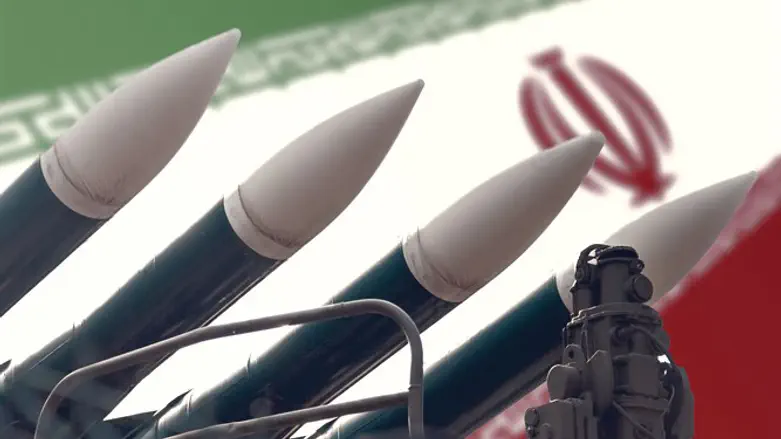
(Jerusalem Institute for Strategy and Security) After several months of uncertainty and delay, Iran has announced its return in November to talks in Vienna regarding a return to the 2015 nuclear deal. The question is, why? This is an unconditional return, contrary to the position previously expressed by Iran, which demanded an easing of sanctions as a precondition to resuming negotiations. The Iranian concession is an apparent American success.
The reason Iran is returning to the talks is simple: the present leadership in Tehran has a clear interest in returning to the 2015 agreement because it is a good agreement for Iran, which seeks to develop nuclear weapons. The Iranians understood that the nuclear deal was good for them and that it is now even more so in light of the rapid progress in their enrichment program.
The real question, then, is why did Iran delay?
The delay may have been a negotiating tactic on the Iranians’ part, designed to elicit concessions from the Americans. Moreover, the Iranians knew it was safe to delay the resumption of talks because they understood that no U.S. military option existed, neither in the current administration nor the previous one. The absence of a military option was the main weakness the Iranians sensed when the previous U.S. administration withdrew from the nuclear deal in 2018.
It was a significant mistake to withdraw from the deal without charting a viable military option and demonstrating the determination to use it if necessary. The Iranians realized that no matter what they did, with the exception of U.S. or other intelligence services detecting the actual assembly of a bomb, the United States was unwilling to use military force to stop the nuclear project.
The Iranian perception that there is no military option on the table will also be their basic assumption in future negotiations. The Iranians know that the United States has no alternative but to return to the agreement, so they will not rush to fold—and may first try to remove sanctions and gain other economic benefits.
The Iranians also observed that after launching drone attacks against an American base in al-Tanf in eastern Syria last month, the United States failed to respond in any serious manner. Even though there were no casualties, this event demonstrated Iran’s determination and reading of American behavior. This lack of an American response signaled that the United States wants to return to negotiations at almost any cost. But, unfortunately, it also might lead Iran to conclude that it can continue its aggressive behavior in the Middle East as long as there are prospects for further talks.
Further, the perceived American weakness will motivate the Iranians to run out the clock in negotiations. The talks themselves give the Iranians more freedom of action as they restrict the ability of the United States to respond to provocations, including even elementary acts of force protection, and thus harm U.S. deterrence.
The United States emphasizes that the return to the nuclear agreement is only a first step, after which it intends to enter into talks aimed at a better and longer deal. However, the chances of reaching such an agreement are nil, because the United States has no leverage over Iran.
Iran could drag the talks out again and things could end back at square one. Moreover, Iran now openly threatens that the talks will fail unless the United States offers guarantees that would bind future administrations’ behavior. Any such attempt to enshrine the agreement as a formal treaty, however, would require ratification by the Senate; the necessary two-thirds majority is nowhere in sight.
Israel cannot and should not interfere with the talks. Still, Israel must obtain from the United States a commitment to complete the negotiations in a short time and not let the Iranian procrastinate for months.
Israel must learn what the U.S. response will be if it turns out that there is no chance of reaching an agreement, and what the timetable might be for attempting to reach a longer and stronger deal.
Either way, Israel must prepare for the possibility it will have to defend itself—because a nuclear Iran is not an option Israel can accept. As has been declared by a few American presidents, Israel should be able to defend itself, by itself.
An effort to prevent Iran from going nuclear will not be simple, and will perhaps even be dangerous—but it is necessary.
IDF Maj. Gen. (res.) Yaakov Amidror was national security adviser to Israeli Prime Minister Benjamin Netanyahu and chairman of Israel’s National Security Council (April 2011-November 2013). He served for 36 years in senior IDF posts (1966-2002) and is a distinguished fellow at JINSA’s Gemunder Center. He is the author of three books on intelligence and military strategy: “Reflections on Army and Security” (Hebrew, 2002), “Intelligence, Theory and Practice” (Hebrew, 2006) and “Winning Counterinsurgency War: The Israeli Experience” (JCPA, 2008).